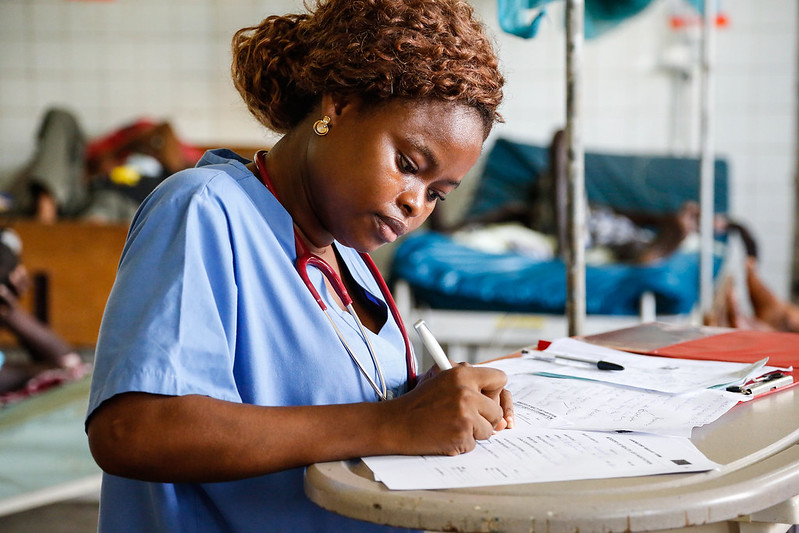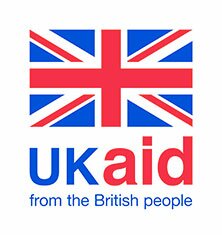The response to the emerging COVID-19 crisis has exposed existing fault lines within our health systems. In particular, it has revealed how health systems reflect gender bias, both in terms of the position female staff occupy and in the way services are delivered to women.
An effective response must be underpinned by an understanding of how its impacts are gendered. This article describes how women are differentially impacted in two main ways – as providers of health services and as recipients of health services – and offers a set of practical recommendations for government, non-government, consultancies, and development partners who are working closely with our health systems. This summary article draws on a rapid literature review of the implications that a health crisis such as an epidemic has for gender, especially for women.
The health system – delivered by women but not for them
Most of the global health workforce is female and many of them work as nurses, carers, or community health workers, are . Not only is there a wage and occupational difference, women are also more likely to receive less managerial support and even be subject to workplace violence and abuse within the system.
Given this imbalance, at the time of a pandemic women are likely to have lower access to resources than men and less bargaining power in terms of the roles and responsibilities assigned to them. For example, a rapid evaluation conducted by OPM on the role of women health workers in the prevention and management of COVID-19 found that community workers responsible for spreading awareness among communities and for reporting potential COVID-19 cases had not been provided with safety masks or sanitisers; however, their senior male colleagues had received PPE kits. Moreover, in some countries PPE kits aren’t designed to fit for women, putting them at greater risk.
Despite the overwhelming female presence in the workforce, the average health system does not function in women’s favour during pandemics or crises. Since health system resources are diverted to pandemic response, women are unable to access routine reproductive, maternal, newborn, and child health (RMNCH) services. Data from other public health emergencies highlights the negative impacts that COVID-19 is likely to have on sexual and reproductive health during pandemic response and in recovery periods. For example, during the Ebola outbreak facility-based deliveries, antenatal check-ups, and routine immunisation rates declined in some parts of Liberia and Guinea when compared to pre-Ebola levels. In Sierra Leone, the diversion of resources to the Ebola response resulted in an estimated 3,600 additional maternal, neonatal, and stillbirth deaths. Already, at least have died in Uganda due to their inability to reach health facilities during lockdown to give birth.
While the impacts of COVID-19 on RMNCH indicators are still unclear, scenario modelling indicates that a 10% decline in the coverage of essential pregnancy-related and newborn care is likely to result in 1,745,000 additional women experiencing major obstetric complications without care, 28,000 maternal deaths, and 168,000 additional newborn deaths in low- and middle-income countries. If health system resources are diverted from RMNCH to COVID-19 response, this could have fatal consequences.
Moving forward
Some of our key takeaways are as follows:
- Place gender concerns at the heart of the health response: This involves putting in place explicit safety measures for female healthcare workers at all levels of the health system, ensuring that community health workers have the right safety gear and are being paid for their extra work and that there is acknowledgement and accommodation of their dual responsibilities.
- Representation of women at all levels of decision-making: The argument for equitable representation of women at all levels of decision-making – including at the level of policymaking – is not based on tokenistic diversity. There is a need to strengthen and restructure our health systems so that women are able to access leadership and decision-making roles.
- Create a gender toolbox for projects: Gender needs to be mainstreamed across all projects, by identifying gender-specific concerns in projects and integrating these into delivery and monitoring and evaluation. A sector-specific gender toolbox will help teams think about their approach on gender.
- Provide gender-specific policy assistance to governments: Policy assistance needs to focus more on increasing the representation of women at decision-making levels, understanding the importance of engaging with gender concerns on policy effectiveness, and creating sex-disaggregated data on issues such as employment, to influence policy design.
The current COVID-19 pandemic provides an opportunity to reiterate the need for equitable work environments across the health sector. Our approach in responding to the pandemic should ensure that healthcare services for women-specific ailments, which continue to claim lives, should not be disrupted. Any technical or policy response to the COVID-19 crisis that does not focus on gender issues risks further entrenching existing inequalities.
A number of research gaps and opportunities for technical assistance in support of a more gendered response to the COVID-19 pandemic were identified in the review. The Maintains programme will explore some of these, alongside its core planned research in Bangladesh, Sierra Leone, Ethiopia, Uganda, Kenya, and Pakistan, as well as exploring sectoral issues at a global level. Gender is a cross-cutting theme throughout all of Maintains’ work.
The full rapid literature review can be found here. The review and this summary article are authored by Gunjan Jhunjhunwala, Governance and Social Accountability Specialist, and Vinaya Padmanabhan, Assistant Consultant, OPM.
All Maintains evidence and articles relating to COVID-19 can be found here.
About Maintains
Maintains aims to save lives and reduce suffering for people in developing countries affected by shocks such as pandemics, floods, droughts, and population displacement. This five-year programme, spanning 2018–2023, is building a strong evidence base on how health, education, nutrition, and social protection systems can respond more quickly, reliably, and effectively to changing needs during and after shocks, whilst also maintaining existing services. With evidence gathered from six focal countries – Bangladesh, Ethiopia, Kenya, Pakistan, Sierra Leone, and Uganda – Maintains is working to inform policy and practice globally. It also provides technical assistance to support practical implementation.
This output has been funded by UK aid from the UK government; however, the views expressed do not necessarily reflect the UK government’s official policies. Maintains is implemented through a consortium led by Oxford Policy Management www.opml.co.uk.



